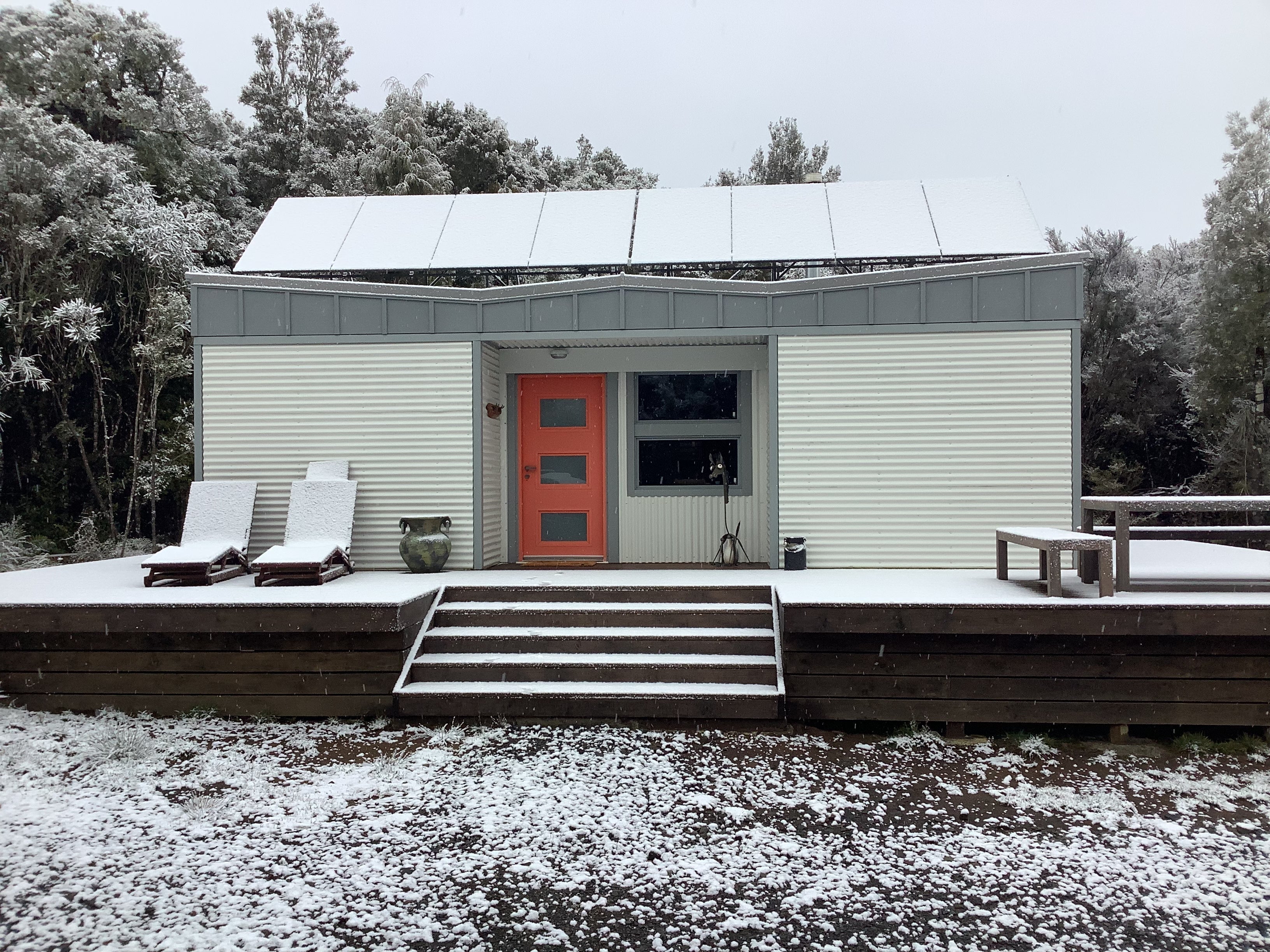Getting ready for your first time living off-grid in winter? It can be a bit daunting heading into it, so in this article we list some recommended tasks to complete before winter really sets in. We've compiled advice from our customers, colleagues, and Facebook group members to try and cover off as much as possible.
Check your generator.
You may need to rely on your generator a bit over winter, so take a moment now to do some maintenance or go get it serviced. It’s always nicer to be messing about with your generator on a clear autumn day than a wet winter one! If you haven’t used it before, be sure to test it now too.
If your generator doesn’t get much use over summer, the fuel might be reaching its shelf life and needs replacing. Check the owner’s manual for any other maintenance that’s required. If you don't have a generator, we highly recommend getting one if you plan to live off-grid full time. If you are unsure what type you need, please get in touch with us and we can make sure you get the right solution for your needs.
Prep your solar panels.
You probably haven’t been too worried about your solar output over summer, but as the sun-hours get shorter, now’s the time to make sure they’re as efficient as possible! Before it gets too nasty outside, give them a good clean to get any accumulated dust and debris off them – we have an article all about how to do that here. If you live in an area that gets snow, it’s good practice for clearing off the snow!
Revisit your power use habits.
As the days get shorter and your solar power generation is less, you might need to reduce your power usage if it increased over summer. Average daily sun hours in winter are less than half that of peak summer, so you’ll have a lot less power generation to work with than what you may have gotten used to using.
You may also have to cut down on how long you’re running certain appliances or plan them for sunny mornings – keep a closer eye on the battery voltage throughout the day so you have warning if you’re getting close to running out of power.
You’re also far more likely to have multiple poor weather days in a row, meaning you will struggle to recharge your batteries fully, on solar, and might not be able to maintain normal power use. This means the most important task is keeping an eye on the weather, as knowing when these periods are coming is crucial in allowing you to prepare for them by reducing your power usage or getting the generator going to top up in advance. Read more about how long periods of poor weather affect power here.
Replenish your LPG reserves.
If you rely on LPG for cooking, heating, and showers, you’ll start going through it a bit quicker as the weather cools down and your usage increases. Check how much you’ve got left in your tanks, book a refill or swap your cylinders in town before you run out. The last thing you want in the middle of winter is your shower suddenly going cold! Take a second to check all your lines for damage while you’re out, too.
Be prepared for complete power outages.
If something goes completely wrong, maybe your batteries are flat, and you can’t use the generator. Think about how you could get by for a couple days with no power. Non-perishable food stocks, and power banks for your phone are two of the best things to have on hand to help you get by – especially important if you live somewhere at risk of having the roads closed during a storm.
Prep your woodstove.
If your woodstove hasn’t been used much over the warmer months, take some time to inspect it before you need it again. You’ll want to sweep the chimney, empty out all the ash, and check the flue, firebricks, damper, and door glass for any damage. Then, check your dry wood reserves to ensure you’ve got enough to last a while. If you’re chopping down the trees yourself, doing it at least 6 months ahead gives it time to dry out properly.
And the most recommended tips when we asked off-gridders:
Insulation.
Thick merino socks, winter sheets, and a good thick duvet, plus thermal curtains, double glazing, and insultation batts are all good ways to keep your body and home temperature up.
Don’t stress the mud too much.
For most places in New Zealand, winter means rain rather than snow, so off-grid properties tend to get a bit muddy – and so will you.
One recommended prep is covering in your deck to create a hybrid indoor/outdoor space for hanging washing in or keeping muddy clothes/boots somewhere they won’t get wetter but won’t clog up the living space.
Another is creating dry pathways, using leftover pallets to create a boardwalk for example, so you can minimise the amount of mud you have to walk through. Of course, living off-grid means living outside more, and getting wet and muddy is just part of it!
If you're heading into your first winter with a GridFree Solar Package and there's anything you're not sure about, feel free to get in touch! And if you want some support from other off-gridders, join our Facebook group GridFree NZ!


